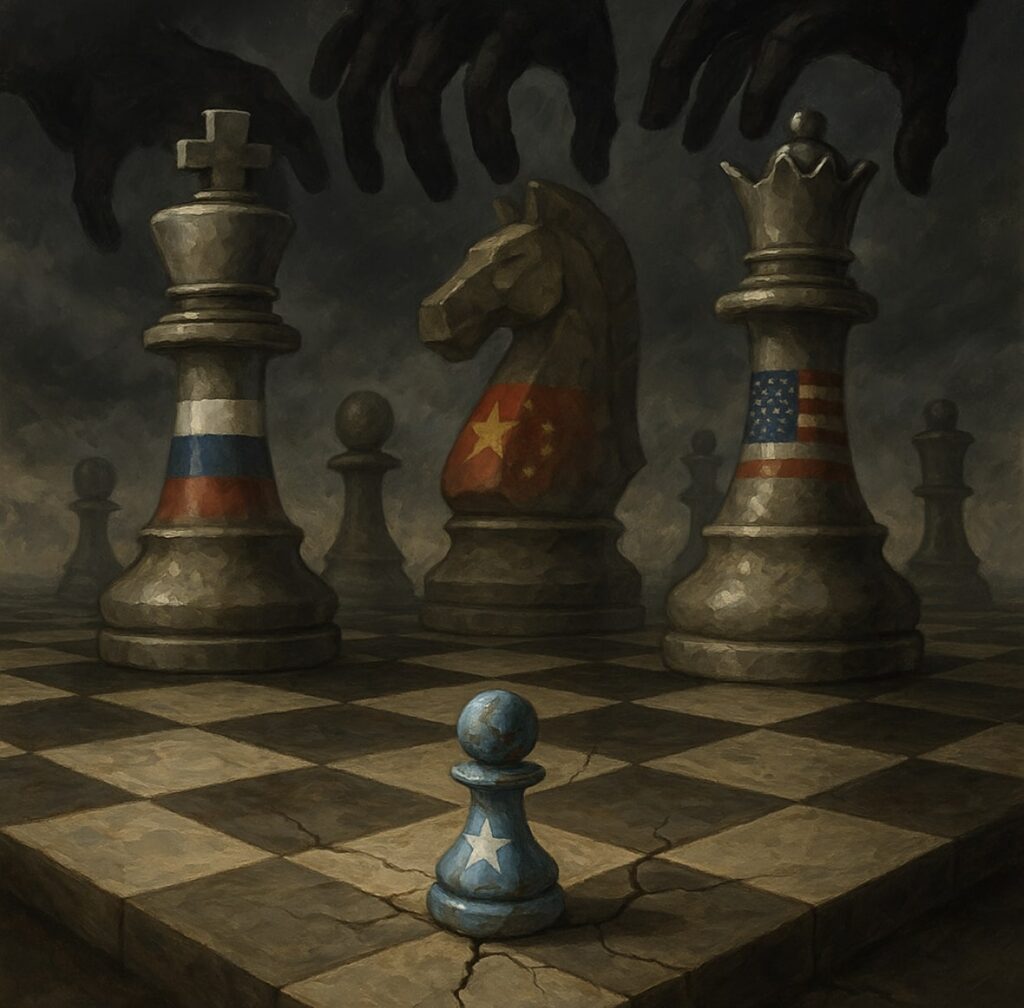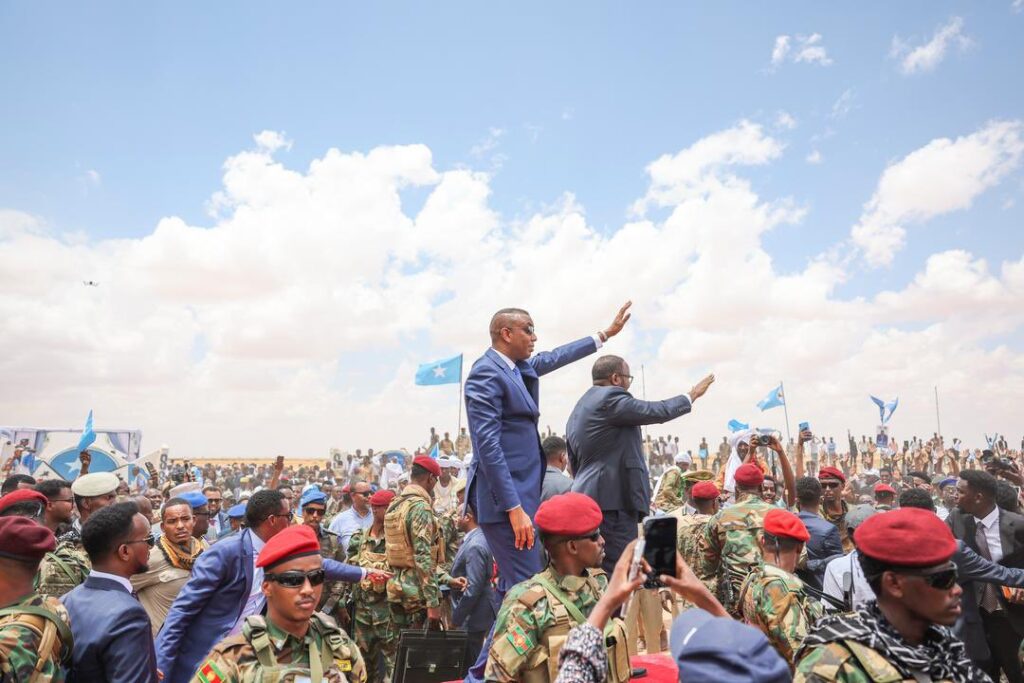Albert Einstein once said, “The definition of insanity is doing the same thing over and over and expecting different results.” For the past two decades, this observation has been painfully evident in Somali politics, where leaders recycle the same promises and approaches yet fail to produce meaningful change. The cycle has led many Somali citizens to question whether political leaders truly understand their responsibilities—or if the allure of power has blinded them to the country’s urgent needs.
Recurring Promises and Broken Commitments
Each Somali political campaign tends to revolve around three main promises: establishing a secure nation free from terrorism, finalizing the constitution, and implementing a “one man, one vote” democratic election system. These goals are critical, resonating deeply with citizens who yearn for stability, representation, and an end to decades of conflict and insecurity. But once in office, leaders often shift focus. Campaign promises become empty words as newly elected officials prioritize their personal agendas over national interests.
Despite the high stakes, political leaders continue this cycle, offering hope during election periods only to disappoint their supporters by repeating the mistakes of previous administrations. As a result, critical issues like security, constitutional reform, and fair elections remain unaddressed, leaving citizens in a state of perpetual frustration.
The Cycle of Political Self-Interest
Instead of focusing on national progress, leaders often invest their energy in securing a second term. The four years in office become a race to consolidate power rather than an opportunity to improve the country’s social, economic, and political landscape. Here’s how this cycle plays out:
- Cultivating a Circle of Loyalists: Rather than selecting capable and experienced advisors, many presidents surround themselves with “yes men”—individuals who agree with every decision and validate the president’s views, regardless of the actual situation. This echo chamber fosters a distorted understanding of national issues and suppresses diverse perspectives that could contribute to meaningful change.
- Engaging in Power Struggles with Regional States: Instead of fostering collaboration with regional states to achieve common goals, presidents often view them as obstacles to their authority. This leads to costly power struggles that further weaken the unity of the nation. Leaders should be bridging gaps and building alliances, yet many are more focused on ensuring regional states fall in line with their personal ambitions, stoking division rather than collaboration.
- Redirecting Resources for Re-election Efforts: Rather than using funds to improve security, finalize the constitution, or strengthen democratic institutions, resources are frequently redirected toward securing re-election. These resources—already scarce—are crucial to the country’s development and stability. When misallocated, they leave Somalia without the critical infrastructure and governance improvements it so desperately needs.
Entrenched Tribalism and Public Awareness
Another factor holding back Somali politics is the enduring influence of tribalism. Tribal loyalty often eclipses national unity, and many political leaders exploit these divisions to secure support. While Somalia’s clan structure offers a sense of identity and cohesion, it also poses significant challenges to building a unified, modern state. Clan allegiances can cloud judgment, discourage national dialogue, and perpetuate divisions that undermine progress.
Adding to the challenge, many citizens lack access to education and information about government processes and policies. This lack of awareness can make it difficult to hold leaders accountable or to advocate effectively for change. Political dialogue often centers on tribal loyalties rather than issues that impact daily life, such as access to education, healthcare, clean water, and food security. As long as tribalism and political apathy prevail, it will be challenging to achieve the necessary shifts in governance that could uplift the entire nation.
The Consequences of Political Inaction
The failure to address security, complete the constitution, or implement democratic elections has left Somalia vulnerable to multiple threats, both internal and external. Terrorist groups continue to exploit political instability, creating fear and instability. Without a strong, united government, Somalia lacks the means to effectively counter these threats. The unfinished constitution has left critical governance issues unresolved, leading to legal ambiguity and hindering the development of a cohesive national identity.
Moreover, the absence of a “one man, one vote” election system deprives citizens of genuine political representation. When citizens cannot elect their leaders directly, they are left with a government that is less accountable and responsive to their needs. The resulting lack of trust in government institutions further alienates the population, creating a disconnect that threatens to widen if unaddressed.
The Path Forward: Breaking the Cycle
For Somalia to move beyond this cycle of political stagnation, leaders must prioritize national goals over personal ambitions. Genuine progress requires a commitment to transparency, accountability, and collaboration. Politicians should actively seek out advisors and experts who bring diverse perspectives, rather than surrounding themselves with “yes men.” They must work with regional states rather than against them, fostering unity through dialogue and mutual respect.
Somali citizens also have a role to play in shaping their country’s future. Public awareness and education initiatives can empower citizens to hold their leaders accountable and demand policies that improve their lives. Organizations and community groups can play a pivotal role in educating the public on civic duties and the importance of transparent governance. By fostering a culture of informed engagement, Somalia can cultivate a new generation of leaders and citizens who are committed to breaking the cycle of political failure.
Conclusion
The “insanity” of Somali politics—endlessly repeating the same
mistakes while expecting different results—has held the nation back for far too long. The people of Somalia deserve leaders who are committed to fulfilling their promises and addressing the challenges that impact daily life. By breaking the cycle of power-driven politics and fostering a culture of accountability, transparency, and unity, Somalia can finally make strides toward the security, stability, and democracy its people deserve.
The journey will not be easy, but the potential for positive change is real. With strong, visionary leadership and an informed, engaged citizenry, Somalia can overcome its challenges and forge a path toward lasting peace, prosperity, and progress. The question now is whether Somalia’s leaders are ready to embrace this opportunity and steer the country toward a brighter future—or if they will continue down the same path, leaving the cycle unbroken and the dreams of its people unfulfilled.





